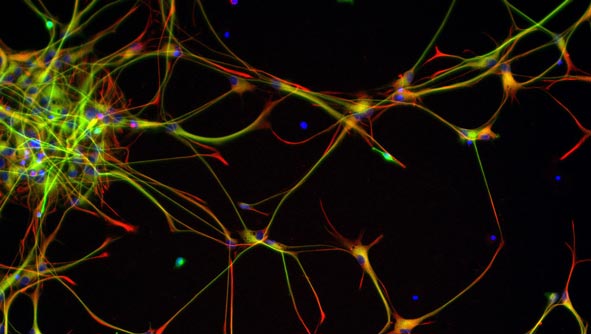Scientists Extract Stem Cells from Brains Using Magnets
Oct 03, 2013 19:18

It's hard to extract stem cells out of brains because brains are very fragile. But that didn't stop Oxford researchers from succeeding. The procedure could shed some light on diseases like Parkinson's and multiple sclerosis.
Oxford's Edman Tang and his team first coated magnetic nanoparticles with antibodies that bond with a type of protein found on neural stem cells. After six hours, they used a magnet to pull the nanoparticles together, and extracted them from the brain using a syringe. And the best part: none of this damaged the rat's brain. The neural stem cells grew freely in a petri dish after it was extracted.
The technique will get more complicated when it comes to a human brain. Humans don't have as many neural stem cells as rodents, and those we have aren't as active, so there's a chance they won't regrow outside the brain. Nevertheless we've got to try. [New Scientist]







































































